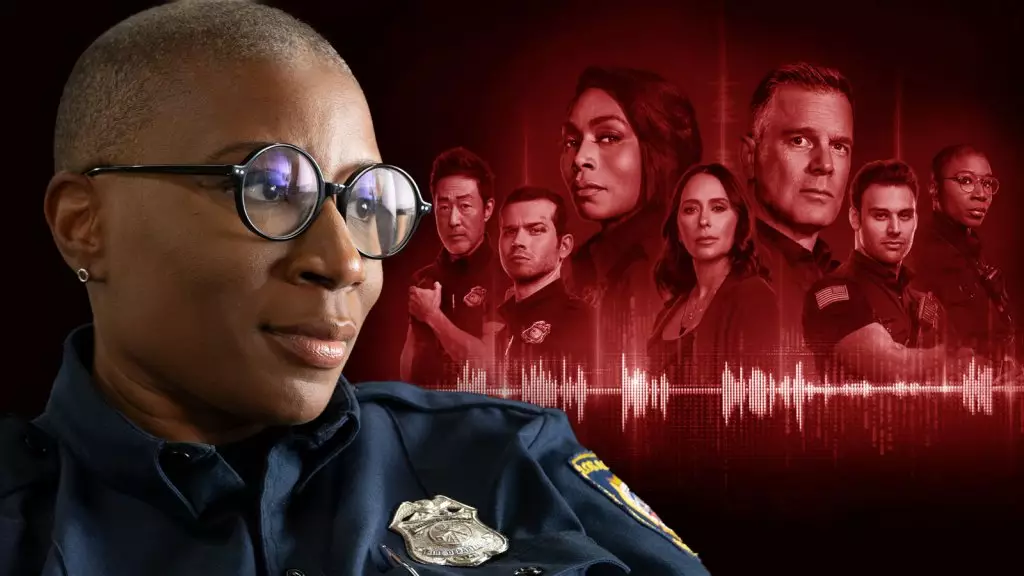The world of emergency services depicted in the television drama “9-1-1” brings with it an unyielding realism that resonates with audiences. When a significant character, like Captain Bobby Nash, portrayed by Peter Krause, meets their demise, it evokes a spectrum of emotions—from heartbreak to nostalgia. The latest episode, aptly titled “Lab Rats,” serves as a vivid reminder of the fragility of life within high-stakes professions like firefighting and paramedicine. Such narrative decisions, while painful, draw attention to the deeper bonds formed between characters—and by extension, the individuals playing those characters—within the pressures of their shared experiences.
The character of Captain Bobby is central not only to the dynamics of the show but also to the emotional journey of his fellow responders. When Bobby sacrifices himself to save Chimney, played by Kenneth Choi, the significance of this act extends beyond the screen. It raises existential questions about heroism and sacrifice, leaving viewers grappling with the harsh realities that first responders face. In doing so, the narrative offers commentary on the toll that such roles can take, echoing sentiments that viewers may feel in their own lives regarding loss and bravery.
Aisha Hinds: A Tribute to a Colleague and Friend
In her poignant tribute, Aisha Hinds, who plays Henrietta “Hen” Wilson, reflects on her deep admiration for Krause. Her heartfelt sentiments highlight the unique bond that often forms among cast members while navigating the emotionally charged moments of their roles. Hinds expressed gratitude for the myriad of ways Krause influenced her journey on set, from the shared laughter to the moments of quiet reflection that speak volumes. This genuine recognition of camaraderie and support among actors transcends mere professionalism and symbolizes the emotional investment they pour into their craft.
Hinds’ remarks about the joy and comfort found in their behind-the-scenes moments underscore the larger themes of connection that “9-1-1” captures. The playful banter and the quiet moments of companionship serve to strengthen the narrative integrity of the show, capturing an authentic portrayal of teamwork that extends beyond scripted scenarios. It’s a microcosm of the real-life relationships fostered within high-pressure environments—from the firehouses to the hospital emergency rooms that professionals inhabit.
The Aftermath of Loss: Eulogizing a Beloved Character
The emotional upheaval that Hinds describes as she reads the script and processes Bobby’s departure reflects a duality faced by actors: the professional obligation to portray a character’s demise and the personal grief that accompanies such a loss. The process of filming his death evokes genuine emotions, blurring the lines between their on-screen roles and off-screen realities. This connection illustrates how deeply intertwined the narratives are in stories of heroism and humanity, reminding both the cast and the audience that they share a communal experience rooted in love and laughter, even amid sorrow.
Krause’s heartfelt farewell adds a layer of poignancy to the storyline. His acknowledgment of the “unruly children of the 118” evokes a sense of family that extends beyond the show. The act of saying goodbye is challenging not only for the characters but also for the actors, who form bonds through shared narratives and experiences. His farewell message, calling on his co-stars to remain “unruly” yet professional, reflects the joy found amid the chaos of firefighting—an aspect that resonates deeply with the essence of the series.
Transformative Moments in Television
The emotional weight of episodes like “Lab Rats” reaffirms the power of storytelling in television. Characters like Bobby Nash offer a mirror to society, illustrating themes of sacrifice, love, and the fragility of life. When a beloved character exits the stage, it forces both the cast and the audience to contemplate the real limitations we all face. As Hinds beautifully articulates, the memories, laughter, and shared struggles will forever remain imprinted in their hearts, encapsulating a profound legacy within the fabric of their fictional world.
In mourning their fictional heroes, viewers are reminded to appreciate the unsung heroes of their own lives—a testament to the indelible impact that narratives like “9-1-1” can have on both personal and collective levels. As we navigate through these themes of love and loss, we celebrate the resilience found in community, and in doing so, we honor the legacy of characters like Captain Bobby Nash.
